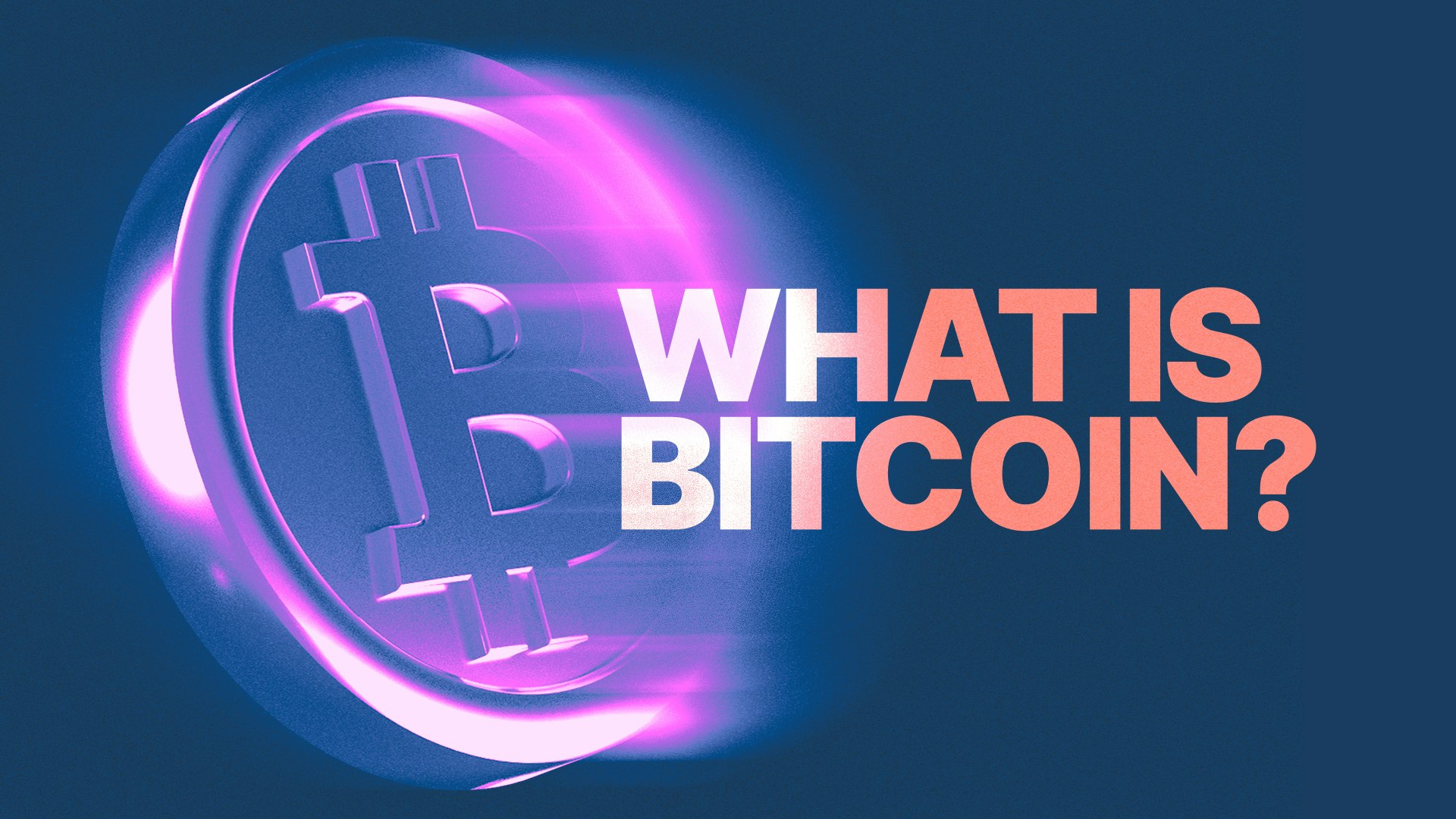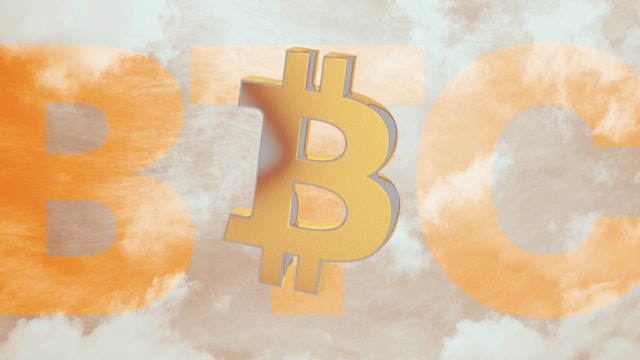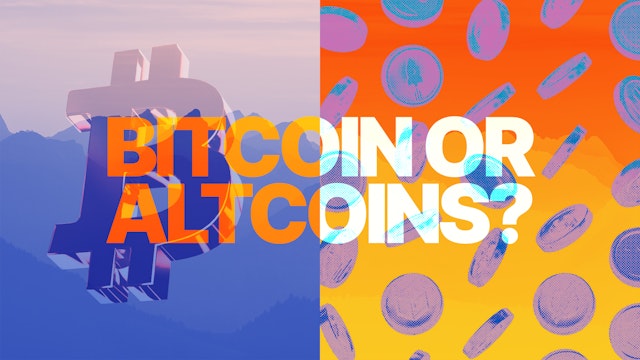Bitcoin for Beginners: A Complete Guide to the World’s First Cryptocurrency
Discover the history, technology, and mechanics behind the digital asset that kicked off a new kind of money.
In this article...
- Bitcoin is a decentralised digital currency that allows peer-to-peer transactions without banks or governments
- The network is secured by a public ledger called a blockchain and maintained through a process known as mining.
- There is a fixed maximum supply of 21 million coins, a feature designed to limit inflation and preserve value over time.

What is Bitcoin?
You have probably heard the word Bitcoin on the news, at work, or around the dinner table. You might still be wondering what it actually is.
Is it magic internet money? Is it a kind of digital gold? Many people ask the same questions. Digital currencies can sound complex at first, but the core ideas behind Bitcoin are quite straightforward once you break them down.
What is Bitcoin?
Bitcoin (BTC) is widely regarded as the world’s first cryptocurrency. It was launched in 2009 by an anonymous creator, or group of creators, using the name Satoshi Nakamoto.
The idea was to build an electronic payment system that relies on cryptography and mathematics, instead of trusting banks, payment companies, or governments to keep records and approve transactions.
Traditional money is issued by central banks and is managed by public authorities. Bitcoin works differently. It is “permissionless”, which means anyone with an internet connection and compatible software can use it without needing a bank account or formal approval.
Bitcoin is not legal tender in most European Union countries. Its value depends on market demand and can be very volatile.
The Whitepaper and the Genesis Block
In 2008, Satoshi Nakamoto published the Bitcoin whitepaper, a document titled “Bitcoin: A Peer‑to‑Peer Electronic Cash System”. This paper described a way of preventing “double‑spending”, where digital money could otherwise be copied and spent more than once.
In early 2009, the Bitcoin network went live with the mining of the “Genesis Block”. This was the very first block in the Bitcoin blockchain and it formed the foundation for every block that followed.
This first block set the initial rules for the network, such as how often new blocks should appear and how rewards would work. It also proved that the system could function without a central authority.
How does Bitcoin work?
To understand Bitcoin, it helps to start with the technology behind it: the blockchain.
The blockchain ledger
You can think of a blockchain as a shared online ledger or spreadsheet. Everyone can see it. No single person or organisation can secretly change it.
This digital ledger records every Bitcoin transaction that has ever taken place.
- Blocks: New transactions are grouped into digital containers called blocks.
- Chaining: Each block is linked to the previous one using cryptography. Over time this creates a permanent chain of blocks.
- Transparency: The ledger is public. Anyone can check that a transaction occurred. The people involved are identified by alphanumeric addresses, not by personal names.
Because the ledger is shared across many independent computers, it is difficult for any one party to alter past records without being noticed by the rest of the network.
The base layer
In technical terms, Bitcoin is a “base layer” or “Layer 1” network. It is the primary record of all Bitcoin balances and transactions.
Bitcoin is designed to prioritise security and decentralisation over speed and flexibility. Some newer blockchain networks can process transactions faster. In contrast, Bitcoin is intended to act as a final settlement layer.
Once a transaction is confirmed in a Bitcoin block and enough additional blocks are added afterwards, it becomes extremely difficult to reverse that transaction.
Where does Bitcoin come from?
Unlike government money (fiat currency), which can be created by central banks or commercial banks, new Bitcoin enters circulation through a process called mining.
Bitcoin mining
Mining is the process where specialised computers compete to solve mathematical puzzles. These puzzles are linked to groups of new transactions waiting to be confirmed.
Miners collect unconfirmed transactions and bundle them into a block. The first miner to solve the puzzle for that block earns the right to add it to the blockchain.
In return, that miner receives a reward. This reward usually includes:
- Newly created Bitcoin.
- Transaction fees paid by users whose transactions are in the block.
This reward helps miners cover the cost of their equipment and electricity. Because many independent miners compete and follow the same rules, it becomes very costly to attack or control the network.
Mining is energy‑intensive. The environmental impact of Bitcoin mining is debated and can depend on the energy sources used in different regions.
The supply cap and halving
The Bitcoin software includes a strict rule that there will only ever be 21 million BTC. This limit sets a maximum supply and is intended to reduce long‑term inflation risk.
New coins are created as part of the mining reward. However, this reward is cut in half roughly every four years in an event known as a “halving”.
The halving slows the rate at which new Bitcoin enters circulation. Over time, fewer new coins are released. The last fraction of a Bitcoin is expected to be mined around the year 2140, although this is an estimate and depends on block timings.
A fixed supply does not guarantee that Bitcoin will keep or increase its value. The price still depends on demand, regulation, competition from other assets, and overall market conditions.
Real‑life examples: How it works in practice
Bitcoin is a “fungible” token. This means one Bitcoin is treated as equal to any other Bitcoin, just as one €10 note is generally worth the same as another €10 note.
This interchangeability makes Bitcoin usable for trade, payments, and investment, although actual usage levels vary widely by country and by merchant.
As a medium of exchange
You can use BTC to pay for goods and services with businesses or individuals that choose to accept it. Acceptance is still limited and not guaranteed.
Because Bitcoin is digital, you can send it across borders in a relatively short time, often in minutes, without using traditional bank transfer systems. For example, you could send BTC to a friend in another country outside normal banking hours, without waiting for international transfers or currency conversions handled by banks.
However, the value of the Bitcoin you send can move significantly during that period. Network fees and confirmation times can also vary depending on how busy the network is.
As a store of value
Some people describe Bitcoin as “digital gold”. They point to its fixed supply and predictable issuance schedule. Since no central authority can arbitrarily change the total supply, some investors use Bitcoin as a long‑term store of value.
They buy and hold BTC with the expectation that it may protect their purchasing power, particularly if they are concerned about inflation in traditional currencies.
This view is not universal. Bitcoin remains a highly speculative asset. Its price has experienced large rises and sharp falls. There is no guarantee that it will preserve or grow in value over any particular time period.
Divisibility (the Satoshi)
You do not need to buy a full Bitcoin. Each BTC can be divided into 100 million smaller units called “Satoshis” or “Sats”.
This allows you to own a fraction of a Bitcoin. For example, if 1 BTC were worth €40,000, then €400 would buy 0.01 BTC, or 1 million Satoshis. The actual price will vary over time.
This high level of divisibility makes it easier for everyday users to send and receive very small amounts, sometimes known as micro‑payments.
Bitcoin vs traditional money
It can be helpful to compare Bitcoin with the money in your everyday bank account, often called fiat currency.
- Authority: Fiat money is issued and controlled by central banks and managed through regulated financial institutions. Bitcoin runs on open‑source software and a decentralised network of participants.
- Supply: Governments and central banks can increase or decrease the money supply to manage the economy. This can lead to inflation or, in rare cases, deflation. Bitcoin has a fixed maximum supply of 21 million coins. Changes to this rule would require broad agreement in the network and are considered highly unlikely.
- Access: Opening a bank account usually requires identification and approval, which can be difficult for some people. Anyone can generate a Bitcoin wallet for free with compatible software. However, using a regulated exchange in the EU will still require ID checks in line with anti‑money laundering rules.
- Physicality: Fiat money can exist as physical cash and as digital balances inside banks. Bitcoin exists only as digital entries on the blockchain ledger. Control over Bitcoin is linked to cryptographic keys, not physical notes or coins.
Bitcoin does not replace the euro or other official currencies in the EU. For most people it is an additional, high‑risk asset rather than a complete substitute for traditional money.
Risks and security red flags
Bitcoin offers more direct control over your own funds. That control also brings more personal responsibility and risk.
There is usually no central authority you can contact to reverse a payment or recover lost access.
- Volatility: The price of BTC can change quickly. It can rise or fall by large amounts in a short time due to market sentiment, regulatory news, macroeconomic events, or large trades. Bitcoin is a speculative asset. You should only invest money that you can afford to lose fully.
- Irreversible transactions: Once you send Bitcoin and the transaction is confirmed on the blockchain, you generally cannot reverse it. If you send BTC to the wrong address, or to a scammer, it is usually impossible to recover.
- Private keys: Your Bitcoin is controlled by a private key or recovery phrase. This works like a very strong password that proves ownership. If you lose your private key or recovery phrase and do not have a backup, you permanently lose access to your funds.
- Scams: Fraudsters often use Bitcoin in scams. Be cautious of any offer that promises guaranteed returns, very high interest rates, or pressures you to send BTC quickly. No legitimate exchange, wallet provider, or financial service will ever ask you to share your private key or full recovery phrase.
If you are using a regulated service provider in the EU, check that it is properly registered or authorised in your country and understand which protections apply and which do not.
How to buy and store Bitcoin
To get started with Bitcoin, you usually need access to a cryptocurrency exchange and a Bitcoin wallet.
Buying BTC
The most common way to buy Bitcoin is through a cryptocurrency exchange or broker. In the EU, these providers are subject to regulations, including MiCA and anti‑money laundering rules, depending on the jurisdiction and timing.
The basic steps usually include:
- Create an account with a regulated provider and complete identity checks.
- Deposit local currency, for example euros, using bank transfer or another supported method.
- Place a buy order to swap your euros for BTC at the current market rate or at a specific price you choose.
Once you have bought Bitcoin, you can:
- Keep it in your exchange account.
- Transfer it to a personal wallet you control.
- Trade it for other crypto‑assets that the provider supports.
- Spend it with merchants or individuals that accept BTC.
Fees, prices, and legal protections vary between providers. Always read the terms and conditions and understand the costs before trading.
Storing BTC
To hold Bitcoin, you need a digital wallet. A wallet does not store coins in a physical sense. It stores the cryptographic keys that allow you to send and receive BTC.
There are two main categories:
-
Hot wallets (online):
These wallets are connected to the internet. They are convenient for frequent trading or everyday spending. Exchanges usually provide built‑in hot wallets for their customers. While they are user‑friendly, they are more exposed to hacking risks. If you hold large amounts on an exchange, you are also relying on that company’s security and solvency. -
Cold wallets (offline):
These are usually hardware devices that look similar to USB drives, or even paper backups stored securely. They stay offline most of the time, which reduces the risk from online attacks. Cold wallets are often used for long‑term storage or for larger holdings. However, if you lose the device and the recovery phrase, or if it is destroyed without a backup, you may lose access permanently.
Whichever method you choose, always:
- Back up your recovery phrase securely.
- Never share your private key or recovery phrase with anyone.
- Be careful of fake apps, phishing emails, and fraudulent websites.
The future of Bitcoin
Bitcoin has grown from a small technical experiment into a global crypto‑asset held and traded by millions of people. Its role has evolved over time.
While it was first designed as a peer‑to‑peer electronic cash system, many users today treat it more as a long‑term investment or store of value. At the same time, some people still use it for payments, especially across borders.
To improve speed and lower fees, developers have built “Layer 2” solutions on top of Bitcoin. One example is the Lightning Network, which allows faster and cheaper transactions by settling many smaller payments before updating the main Bitcoin blockchain.
In recent years, some public companies and a few nation states outside the EU have chosen to hold Bitcoin in their reserves. They use it as one of several assets for diversification. This approach carries significant risk because of Bitcoin’s volatility and regulatory uncertainty.
The launch of Bitcoin‑linked exchange‑traded products in some markets has also made it easier for traditional investors to gain exposure through regulated financial instruments. These products track the price of Bitcoin but come with their own fees, risks, and legal structures.
No one can reliably predict Bitcoin’s future price, level of adoption, or regulatory treatment. It may continue to be an important part of the digital asset market, but it could also face strong competition from other technologies or changes in law and policy.
Bitcoin is not suitable for everyone. Before investing, you should consider your financial situation, risk tolerance, and time horizon.

Suggested Articles

Bitcoin Dominance: Is Alt Season Near? Technical Analysis May Provide Clues
What is Bitcoin Dominance? And how can keeping an eye on it give insight into alt season? Here is the explainer.Read more
Is It Too Late to Buy Bitcoin? Here Are Some Thoughts
Is it too late to buy Bitcoin? It's a common question now that Bitcoin is 16 years old. Here are some thoughts about it.Read more
Buy Bitcoin vs Altcoins: Why Your First Crypto Will Probably Be Bitcoin
Buy Bitcoin vs altcoins to understand crypto fundamentals, volatility and risks. Learn why Bitcoin is a practical first step before exploring altcoins.Read moreBrowse by topic
Warning: Past performance is not a reliable guide to future performance. If you invest in this product, you may lose some, or all, of the money you invest. The above information is not to be read as investment, legal or tax advice and takes no account of particular personal or market circumstances; all readers should seek independent investment, legal and tax advice before investing in cryptocurrencies. There are no government or central bank guarantees in the event something goes wrong with your investment. This information is provided for general information and/or educational purposes only. No responsibility or liability is accepted for any errors of fact or omission expressed therein. CoinJar Europe Limited makes no representation or warranty of any kind, express or implied, regarding the accuracy, validity, reliability, availability, or completeness of any such information. CoinJar Europe Limited is authorised by the Central Bank of Ireland as a crypto-asset service provider (registration number C496731).
Your information is handled in accordance with CoinJar’s Privacy Policy.
Warning: Past performance is not a reliable guide to future performance. If you invest in this product, you may lose some, or all, of the money you invest. The above information is not to be read as investment, legal or tax advice and takes no account of particular personal or market circumstances; all readers should seek independent investment, legal and tax advice before investing in cryptocurrencies. There are no government or central bank guarantees in the event something goes wrong with your investment. This information is provided for general information and/or educational purposes only. No responsibility or liability is accepted for any errors of fact or omission expressed therein. CoinJar Europe Limited makes no representation or warranty of any kind, express or implied, regarding the accuracy, validity, reliability, availability, or completeness of any such information.
CoinJar Europe Limited is authorised by the Central Bank of Ireland as a crypto-asset service provider (registration number C496731).
For more information on our regulatory status and the crypto-asset services we are authorised to provide, please see our official announcement and our MiCAR Legal & Regulatory Information page.
Apple Pay and Apple Watch are trademarks of Apple Inc. Google Pay is a trademark of Google LLC.
This site is protected by reCAPTCHA and the Google Privacy Policy and Terms of Service apply.

